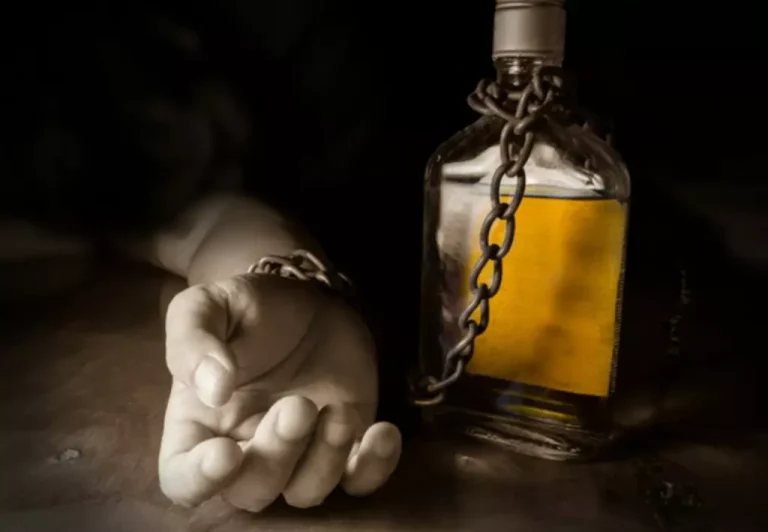Stages of Alcoholic Recovery

Developing an addiction to alcohol takes time, and can easily be dismissed as just “social drinking” or being used to simply “unwind.” Though it is possible to drink this way, individuals who are predisposed to addiction can become trapped in a vicious cycle.
If you or someone you love can fall into these paradigms, it is important to know the steps towards recovery. Knowing what steps to take towards recovery is like having a map to a destination you are driving. Addiction is the place that you want to leave behind, and sobriety you want to find. The road is difficult, but the reward at the end is better than ever imagined. Sometimes the trip is voluntary, other times it is pressured by family or friends, or even court ordered. Regardless of the motivation, heading towards an alcohol-free lifestyle follows a general progression.
Recovering from an addiction to alcohol, or any substance, is a process, and each step needs to be taken in its proper place. These are recognizing the problems associated with the addiction, making the conscious decision to change, preparing to do so, taking the actions towards recovery, and then continuing the work to stay sober. It is no easy task to complete, but doing so will make life far richer and much fuller.
While each step needs to be taken through this journey, some people do not complete it in a straight line. It is possible to stumble and fall, to have a relapse at one time or another. As long as there is a general movement toward the end goal of sobriety, that is all that matters.
Precontemplation
The first step on the road to recovery is recognizing the negative impact alcohol is having on your life. The ramifications at first may not be dramatic, but over time, inevitably things will get worse. At first, it can be easy to ignore the signs while spiraling out of control, but if honest with oneself, the truth becomes more apparent. During this stage, alcoholics attempt to deny their drinking is truly negative. They consciously make an attempt to hide their drinking or any evidence of the negative effects.
When individuals are in the stage of precontemplation there is resistance to the idea that there is a problem. Some people will just completely deny any problem, others will feel hopeless and try to hide from their issues. Both are examples of defense mechanisms coming into play. The common theme of the precontemplation stage is to give into base emotions and hide from problems. Even if an individual is talked into going to rehab or meetings, there is little to no chance the concepts are going to make a lasting impression.
Not until an alcoholic makes the conscious decision to get sober will they be on the path to recovery. It is very easy to get trapped in the precontemplation stage. Many alcoholics just refuse to see the negative effects that their drinking is having on their lives. It is not until an honest look is taken at oneself that the negativity can be spotted.

Take back control of your life and start on the road to recovery now.
Contemplation
During the stage of contemplation, individuals start to recognize the negative effects of their drinking. This recognition leads the alcoholic to begin to consider quitting. Though the thought is creeping into their mind, they do not act upon it. Many alcoholics do not want to leave a life they misinterpret as glamorous or fun. Often people believe they will lose contact with drinking buddies, sometimes losing long-time friendships. The truth is many of these friendships are actually toxic. It will be better, in the long run, to not be hanging out with people that are really bringing you down. It is the same with alcohol itself. It is easy to believe it is making your life more fulfilled, but in reality, it only brings people down.
Procrastination is a common trend in the stage of contemplation. Alcoholics will go back and forth in their minds about getting sober. Playing mental gymnastics, it is easy to justify drinking. Some people will take time off from drinking to justify the amount they drink other nights.
A common modality of thought in this stage is that of teetering back and forth between whether to get sober or continue drinking. There are often thoughts of guilt or shame associated with this stage, and people can be stuck in this paradigm for a long time. No amount of outside influence will change an alcoholic’s mind. The decision has to come from the alcoholic themself, otherwise, there will be no change.
Once the conscious decision is made to get sober it is time to start preparing for the journey. It is important not to rush into this process. Alcohol detoxing can be deadly, so it is important to gather the proper information before beginning. Though it can be dangerous, preparing for the process will make you that much more likely to be successful.

Preparation
The preparation stage is the point that alcoholics have finally made the conscious decision to become sober. An old saying goes, action follows intention, so is the case here. Setting the intention of how to start the road to recovery is the very first step upon it. Do not hurry to the destination of sobriety though. It is important to put together a proper plan before setting off. Determining information such as what facility would be best for you, what level of care you will need, personal finances, and other factors should be carefully considered before taking any rash action. Living a life of sobriety is a full-time commitment, so having as much information set prior to starting it will lead to a greater chance for a successful mission.
Not only is it important to have the logistics of your action plan planned, but it is also important to begin thinking about other goals. What is it that you want to achieve in your personal life, and how will sobriety help you achieve it? Trying to set personal goals of where you would want to be in a certain time frame can give you the motivation to achieve what you want. Understand that once you set forth to start your plan, you need to have the courage to see it through. There will be times when you want to quit when you want to go back to the easy escape of booze. Having a proper plan in place will help you to avoid succumbing to temptation.
Planning is not enough to find the peace of an alcohol-free life, there has to be action. It can not be stressed enough though how essential it is to plan out your detox. Once this is taken care of though, the process truly begins. The intentions set forth become reality in the form of action.
Action
After all the planning has happened, the next step to take is to actually execute the plan of action. Alcohol is very taxing on the body, and when detoxing the body goes through withdrawal, which puts tremendous strain on it. Because of this, it is important to go through these symptoms intelligently.
Having a plan prior to going through a withdrawal is super important, staying at a medically equipped detox facility is advised. Though detoxing can be very difficult for some, with proper supervision and medical assistance it is possible to get through it. Detoxing is not the last step of the action phase, there is still about 3 to 6 months to potentially a year’s worth of work to complete. Because relapse is so common, it is advisable
After detoxing, the recovering individual can start to work on the steps to continually better their lives. If an alcoholic does not commit to forming proper habits, it is very likely they will slip into a relapse. Options to consider are long or short-term residential treatment centers, outpatient treatment programs, or some form of counseling.
Having a support network is key to maintaining successful sobriety. Within this support structure, you will learn techniques to avoid a relapse. Some techniques include avoiding triggers, knowing proper ways to cope with difficulties, and knowing where to go to have fun without drinking.
Learning techniques to stay sober is one thing, but continuing the process is the most important aspect of life. If techniques are learned and then not used, they are worthless. Creating proper habits is the only way to maintain a healthy alcohol-free life.
Maintenance
Once new techniques for living an alcohol-free lifestyle are learned, it is time to put them into practice. The most important thing to achieve after completing a program is to form proper habits to maintain sobriety. After about enough time practicing techniques learned from your choice of program you will begin to develop habits to help keep on the correct path.
This is the true test of character, maintaining an alcohol-free lifestyle. It is easy to fall into temptation, by not succumbing, one shows their true strength. Keeping this up for life is no easy task, but is definitely worth it.
Termination
The final stage of the recovery process is termination or when one no longer has the urge to drink. There is a bit of controversy as to whether there is really ever this stage reached since there is always a chance for relapse. It is important for the recovered alcoholic to recognize the chance to relapse is always present. Difficulties arise in life and years of work can come crashing down when life goes exactly opposite to what is expected or wanted. Having a strong support structure

This can be a difficult journey, but you don’t have to go it alone. Let us be your guide and provide you the environment needed to regain control of your life and begin the path to recovery.
Alcohol-Free Life
Living an alcohol-free lifestyle brings many benefits. There are so many negative effects on the body from drinking. From excess sugars, unnecessary calories, and the intense strain that is put on the liver it is a wonder why people drink, to begin with.
The simple answer is it is socially acceptable and easily available. There are a lot of problems in our modern world, and sometimes it is easier to reach for a bottle and escape from them rather than face them. It may be easier to do this, but that does not make it better. Develop a great character and an amazing life by choosing an alcohol-free life.
If you or a loved one is struggling with addiction and wants to get started on the path to recovery, reach out to us at ecosoberhouse.com. We have the resources you need to start out and get you to where you want to be.




